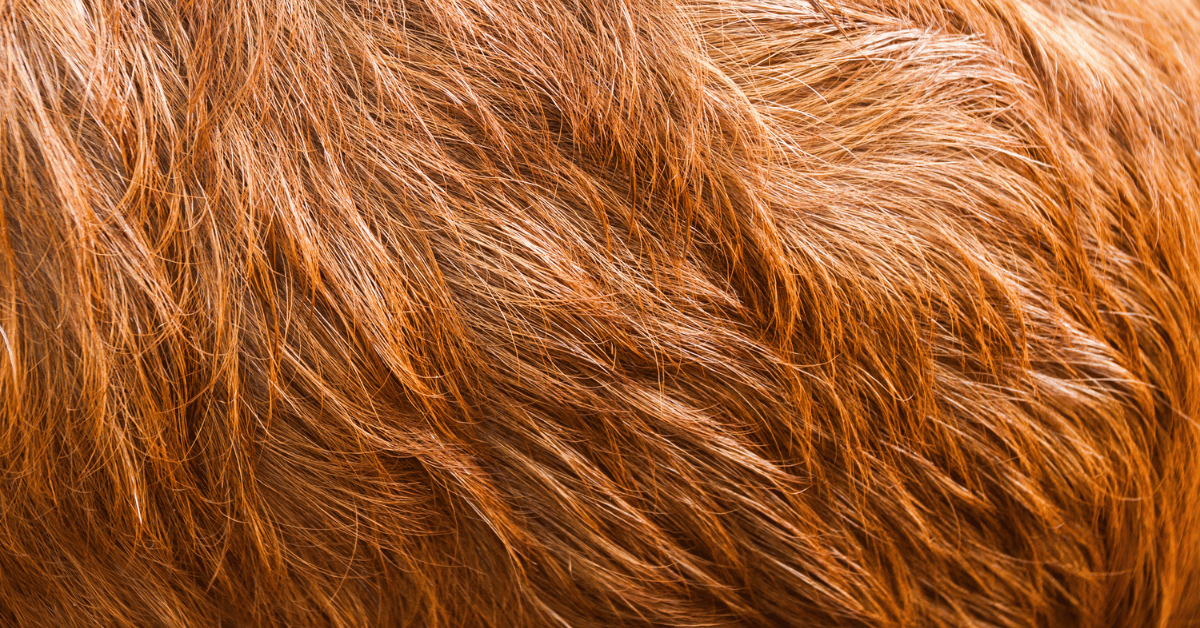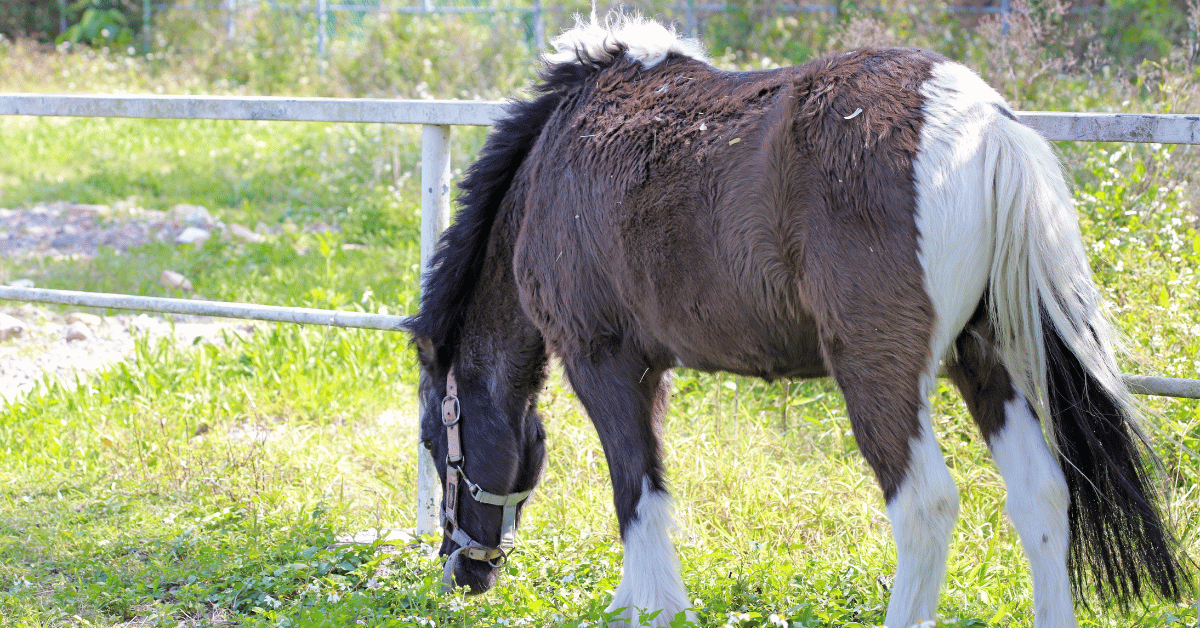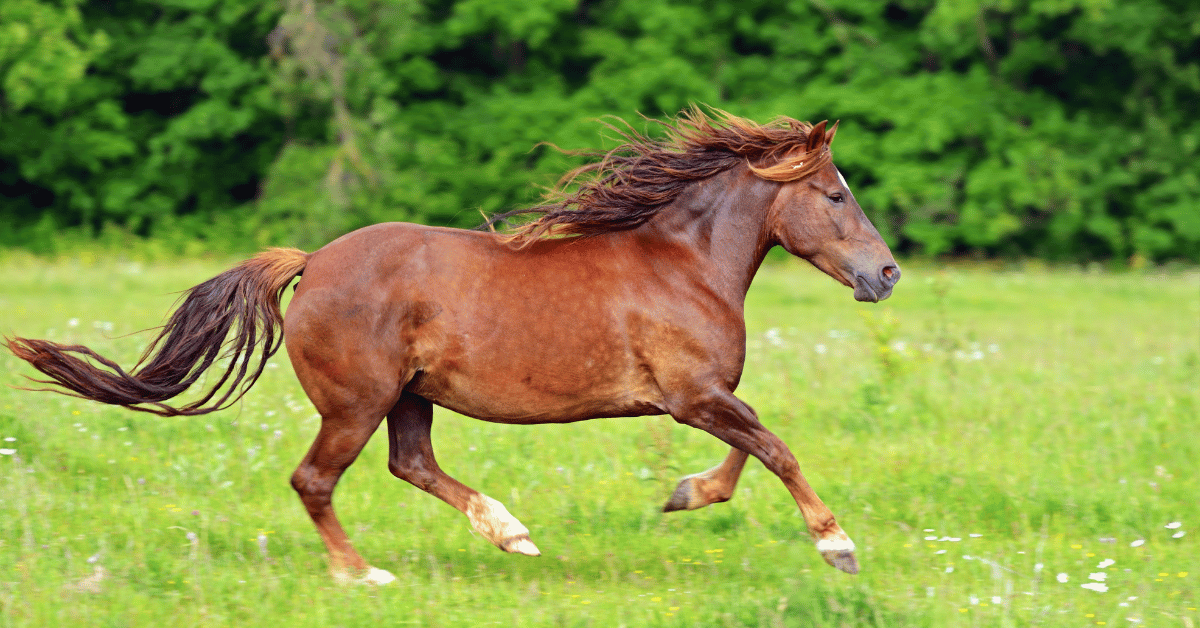Managing Coat Problems in Horses with PPID
Horses with PPID often develop a long, thick, and curly coat. Medication for PPID may slow hair growth slightly, but often only to a limited extent. Should you do something about this coat – and if so, what?
Salmon oil
Diseases

24 August '25 • 1 min reading time
The typical PPID coat is very warm and can cause itching. This becomes particularly uncomfortable during the increasingly hot summers. In addition, horses with PPID have slow wound healing, and wounds are harder to detect and treat under a thick coat. That’s why many horse owners choose to fully or partially clip their PPID horses.
Preparation
Clipping a PPID horse can take considerable time. This is due not only to the thick coat but also to the horse’s potentially sensitive skin. Your horse might react more strongly. Consider breaking the process into sessions and let your horse get used to the clipper gradually. Use a strong clipper with clean, sharp blades. Cattle blades are sometimes recommended, as they handle long hair better and often fit standard horse clippers. A regular trimmer is not suitable – it will get stuck and may cause cuts or scratches. The coat should be clean (washed or brushed) and dry before clipping.
Full or Partial Clipping
You can choose to clip only the areas that cause the most heat build-up or itching. Heat is released primarily through the neck and chest, so start there. Reward your horse for calm behavior and work in small steps. Clean the blades regularly and oil the clipper frequently. Stop if the machine gets hot, as that can be uncomfortable for your horse.
Aftercare
Carefully check for any scratches or wounds caused during clipping, and treat them with a disinfectant and possibly honey ointment. Since wounds heal more slowly in PPID horses, this is an important step.
Alternatives and Support
If you prefer not to clip your horse, it’s still essential to keep the coat clean to reduce itching. If you notice itching or rubbed areas, use a probiotic spray to support the skin’s microbiome – also suitable for treating wounds. Prevent overheating by rinsing your horse with cold water on hot days, ensuring good ventilation in the stable, and providing shade in the pasture. You can also support coat and skin health with supplements like salmon oil or DHA algae – whether you clip or not.


